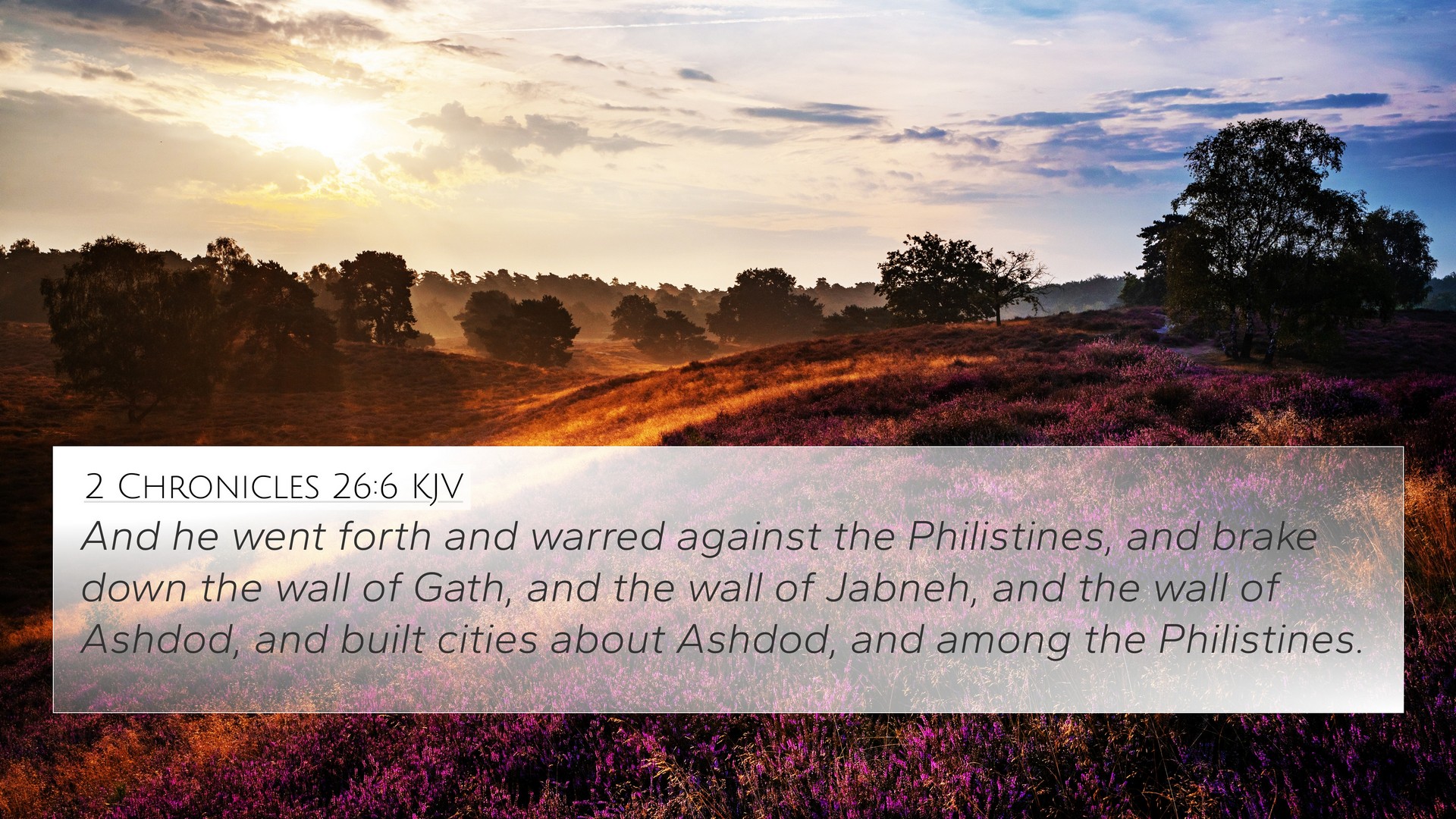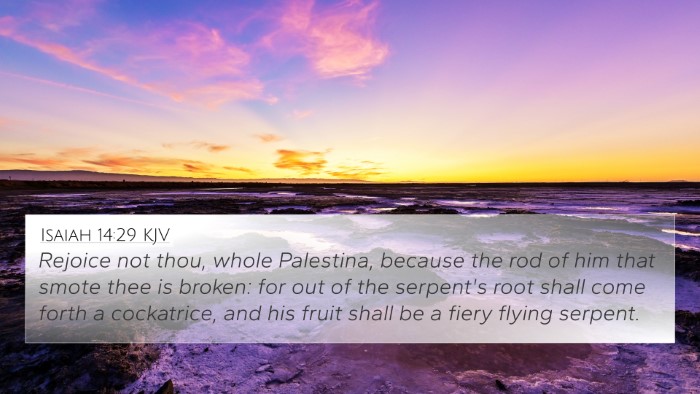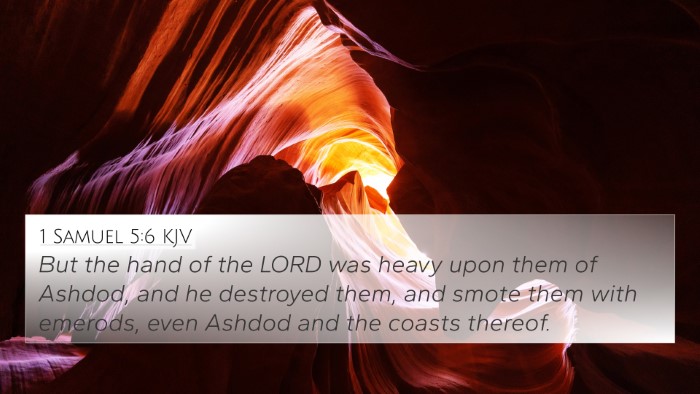Bible Verse Meaning: 2 Chronicles 26:6
Verse Text: "And he went forth and warred against the Philistines, and broke down the wall of Gath, and the wall of Jabneh, and the wall of Ashdod, and built cities about Ashdod, and among the Philistines."
Summary of Meaning
This verse highlights King Uzziah's military prowess as he engaged in battles against the Philistines, showcasing his strength and strategic skills. His actions demonstrate a blend of leadership and divine favor, emphasizing how Uzziah sought to expand his territory and protect his kingdom. This pursuit of conquest reflects a period in Israel's history characterized by conflict but also by significant accomplishments in leadership and governance.
Commentary Insights
-
Matthew Henry:
Henry emphasizes Uzziah’s proactive nature in confronting his enemies, highlighting the importance of taking initiative in leadership. His victories are attributed not only to his military ability but also to his reliance on God. Henry draws parallels with other biblical leaders who undertook similar quests for their nations’ security.
-
Albert Barnes:
Barnes points out the significance of Uzziah’s conquests and the fortification of cities as a means of self-preservation against external threats. He notes that Uzziah's victories were a blessing from God and an indication of divine favor, which contrasts with the eventual downfall stemming from pride.
-
Adam Clarke:
Clarke elaborates on Uzziah's military campaigns, contextualizing them within the history of Israel's adversaries. He emphasizes Uzziah's role in strengthening Judah against the Philistines and interprets his success as a reflection of both obedience and God’s providence throughout Uzziah’s reign.
Bible Verse Cross-References
Here are some relevant Bible verses that relate to 2 Chronicles 26:6, illustrating the connection between various scriptural themes:
- 2 Chronicles 26:5: Uzziah sought God during the days of Zechariah, which ties his successes to his faith.
- Isaiah 14:29: Citing historical context of Philistine conflicts that helps understand Uzziah's military actions.
- 1 Chronicles 5:18-22: Discussing the Reubenites, Gadites, and the half-tribe of Manasseh’s victories over their enemies.
- 2 Kings 14:8-14: Parallel accounts of other kings in battle, illustrating the common themes of military strength.
- Psalm 144:1: Acknowledgment of God as a source of strength in battle.
- Zechariah 9:6-7: Prophetic connections regarding judgment against the Philistines.
- Leviticus 26:7-8: Promises of victory for Israel if they remain obedient, linked to Uzziah's initial faithfulness.
- Exodus 23:22: God’s directive to Israel regarding battles and assurance of His presence.
- 1 Samuel 17:50: The story of David and Goliath, representing earlier conflicts with Philistines.
- 2 Chronicles 20:15: God's promise of victory for those who trust in Him during conflict.
Understanding the Context
Uzziah's victories are set against a backdrop of both covenant blessings and the often precarious nature of Israel's political and spiritual health. His story connects with broader themes within scripture regarding obedience, leadership, and the consequences of pride.
Thematic Connections
The themes present in 2 Chronicles 26:6 resonate throughout the Bible, with Uzziah’s military campaigns reflecting God’s continued involvement in Israel's history. The pattern of seeking God resulting in blessing can be traced through various figures in the Old Testament, establishing a genre of scriptural cross-referencing that demonstrates God’s faithfulness to Israel.
Conclusion
In analyzing 2 Chronicles 26:6, it becomes clear that the verse serves as a vital link in the narrative of God's people, bridging the past to the themes of faith, leadership, and divine intervention. For anyone seeking to delve deeper into Bible verses and their meanings, understanding Uzziah's reign and connecting his endeavors to the overarching biblical narrative opens a rich field of study regarding God's covenant relationship with His people.








